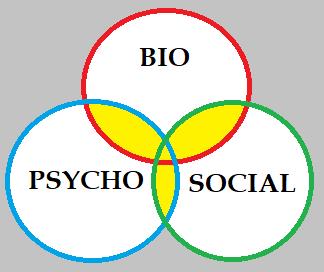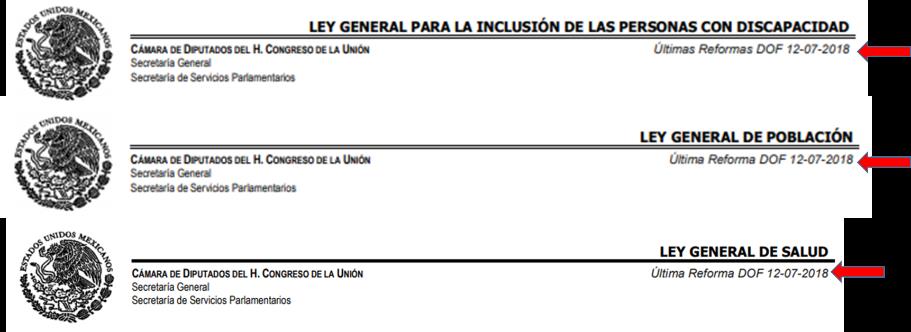Implementation of ICF in Mexico: efforts to get information under a biopsychosocial perspective
According to the International Classification of Functioning, Disability and Health (ICF) by World Health Organization, Disability is an umbrella term, covering impairments, activity limitations, and participation restrictions. An impairment is a problem in body function or structure; an activity limitation is a difficulty encountered by an individual in executing a task or action; while a participation restriction is a problem experienced by an individual in involvement in life situations (WHO, 2001).
Nowadays, the availability of data on disability has improved significantly, given that the number of countries that collect this data in all parts of the world has been increasing. Thus, the integration of the disability issue in information sources becomes increasingly necessary, since it is important to know the situation in which this population group is located and to know if people with disabilities really have access to an integral rehabilitation, if they are working, if they are attending schools and if there are public policies to support them. These situations are reflections of social inclusion (UN, 2007).
In Mexico, through the Mexican Centre for Classification of Diseases (CEMECE by acronym in Spanish), the WHO-FIC Collaborating Centre in Mexico has worked in tasks related to the training and implementation of the ICF. These activities are part of a great challenge for our country, because for us is quite important change the perspective of functioning and disability into a biopsychosocial model. There are some tasks that we have done.
First, in 2014 a working group on disability formed within the Technical Specialized Sectorial Committee of Health in Mexico, prepared an instrument based on the ICF for disability registry, which is known as the Person with Disability Card (CPD, acronym in Spanish). This instrument was designed to create an administrative record of the population for the Health Sector and the final purpose was to obtaining information to address problems of attention and prevention of disabling conditions for this sector as well as others on the subject of disability.
The Person with Disability Card has four sections as an effort to cover the components of ICF:
1) Identification data: Medical unit, Identification of disabled person, Patient data (Personal Factors)
2) Sociodemographic information: Health, Education, Work (Personal Factors)
3) ICF components: Functions and body structures, Activities and Participation, Environmental factors
4) Medical diagnosis: Diagnosis (ICD 10, start and origin), Information from physician
This data collection instrument was checked by PHO/WHO regional advisers and we now have a final version.
After that, in 2018, changes in General Laws in Mexico (Health, Inclusion of People with Disabilities and Population) were modified with the instruction that the functioning and disability assessment must be made with the ICF: under the biopsychosocial approach. Besides, in 2019 the certificate of disability must be created with the components of ICF and in accordance with the Convention on the Rights of Persons with Disabilities (CRPD).
Based on this general vision, the great challenge for Mexico is to implement the information systems of people with disabilities under the vision and approach of the ICF, that is, the biopsychosocial approach proposed by this classification for the evaluation of the functioning and disability.
The tasks that we are doing, are focused mainly on the training of different people interested in the subject, professionals who work with health and health-related states to achieve an objective use of the proposed approach. We are convinced that is very important that everyone knows the new way to assess functioning and disability before the design of a certificate of disability.
The purpose of these training activities is for health professionals to form multidisciplinary teams, capable of assessing the functioning/disability, taking into account the components of the ICF and their interaction. There is even an incentive to take advantage of the instruments already defined by each discipline to be able to make a comparison with the domains and qualifiers of the ICF, for example: psychometric instruments, assessment instruments in social work, and the tools defined in rehabilitation and specialized medicine.
Simultaneously, the Working Group has to develop the national official document which will detail the assessment of the people. The weights that will be determined by each component of the ICF will be of paramount importance in order to determine how to define if a person with handicap has a disability or does not have any, and determine the degree. This document, under this perspective, will be for the whole country.
The final objective is to make instruments in a real context through which personal codes can be obtained to know the situation of each person with regard to their health in a simplified way, and that these in turn can be understood throughout the country and internationally, which would reduce intervention times by specialists, in addition to knowing the impact of social barriers for women and men living with disabilities.
We hope to have a first version of the Disability Certificate in Mexico before the end of 2019, and for this it is quite important to obtain the conformation and training of multidisciplinary teams to reach agreements to qualify the disability in accordance with the ICF in Mexico.
References
1. International Classification of Functioning, Disability, and Health: ICF. Geneva: World Health Organization, 2001. Print.
2. UN General Assembly, Convention on the Rights of Persons with Disabilities: resolution / adopted by the General Assembly, 24 January 2007, A/RES/61/106, available at: https://www.refworld.org/docid/45f973632.html [accessed 28 January 2019]
For information:
Manuel Yañez, Mexican WHO-FIC CC (CEMECE), e-mail:
manuyh@yahoo.com.mx

